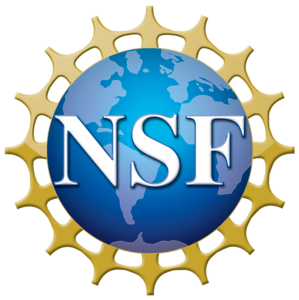Roster of Participants
| Photo & Contact Information | Research Interests |
|---|---|
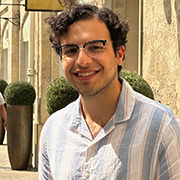 Amer Al-Hiyasat |
I am a theorist interested in nonequilibrium statistical mechanics and active matter, with a focus on dynamical field theory, coarse-graining techniques, and microscopic simulations. Institution: Massachusetts Institute of Technology Advisor: Julien Tailleur |
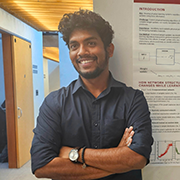 Vidyesh Rao Anisetti |
I am a theorist. My research focuses on harnessing the inherent physics of physical systems to train them, uncovering natural processes that mirror the ‘learning’ seen in artificial neural networks, and providing a framework for understanding adaptive behaviors in biological systems. Institution: Syracuse University Advisor: J.M. Schwarz |
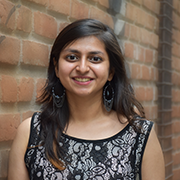 Pragya Arora |
I am an experimental physicist currently working as a postdoctoral researcher at Brandeis MRSEC, specializing in interdisciplinary research that merges physics, engineering, DNA nanotechnology, and materials science to pioneer the next generation of biomaterials. I got my PhD from JNCASR, India, where I explored the interplay of nature, activity, chirality, and deformability in glassy slowing down. I developed a novel strategy to 3-D print tunable designer active granular matter. Looking ahead, I am driven to explore non-equilibrium self-assembly, inspired by the fascinating mechanisms observed in biology. My approach involves leveraging inanimate objects as tools, designed to replicate the functionalities inherent to living systems. Institution: Brandeis University Advisor: Seth Fraden |
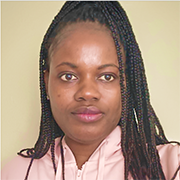 Somiealo Azote epse Hassikpezi |
I am a theorist interested in utilizing and advancing 3D mechanical models to study the biomechanics of cell migration (delamination) in living epithelial tissues, along with prior investigations on cytoskeletal network self-assembly using mean field approaches and protein folding via coarse-grained simulations. Institution: Syracuse University Advisor: Lisa M. Manning |
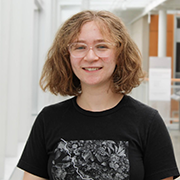 Anna Barth |
I am an experimentalist interested in shear thickening suspensions, and specifically exploring how shear thickening behavior can be manipulated via external perturbations. Institution: Cornell University Advisor: Itai Cohen |
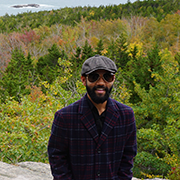 Agnish Kumar Behera |
I am a theorist who works on behavior of information processing systems when they are driven out of equilibrium. Institution: University of Chicago Advisor: Suriyanarayanan Vaikuntanathan |
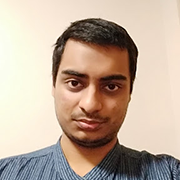 Saraswat Bhattacharyya |
I am a theorist interested in self-organization in active matter, and have been working on phase separation and wetting in active systems. I have worked on a two-fluid model to model mixtures of active species, and also done work on active nematics in viscoelastic confinement. Institution: University of Oxford Advisor: Julia Yeomans Website |
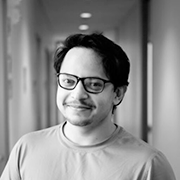 Subhaya Bose |
I am a theorist and interested in the effect of elastic substrate deformation on the directed motion of motile cells. In addition to that I do PIV analysis of actomyosin gels and aim to understand how feedback between active stress and elastic strain can cause alignment in the network. Institution: University of California, Merced Advisor: Kinjal Dasbiswas |
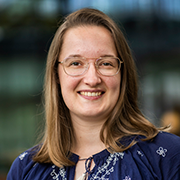 Quirine Braat |
I am a theorist interested in the emerging collective behavior of actively migrating cells. By utilizing principles from active matter physics, I aim to investigate what parameters determine the formation of migratory cell clusters in (densely-packed) tumor environments. Institution: Eindhoven University of Technology Advisor: Liesbeth Janssen, Kees Storm |
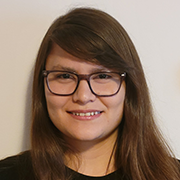 Lara Braverman |
I am a theorist interested in the role of curvature on the nucleation, growth, and ground state of crystals. Specifically, I’m interested in the effect of intrinsic curvature such as that present on the surface of cones on the forces between topological defects. Institution: Harvard University Advisor: David Nelson |
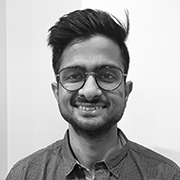 Aravind Chandrasekaran |
I am a theorist interested in understanding mechanochemical consequences of condensates, particularly in the context of actin cytoskeleton. Interests: Activa matter, phase separation, axonal dynamics Institution: University of California, San Diego Advisor: Prof. Padmini Rangamani Website |
 Yuzhu Chen |
I’m a theorist in training and I’m interested in biological problems related to differential geometry, continuum mechanics, fluid mechanics, and soft matter physics. Institution: University of California, San Diego Advisor: David Saintillan |
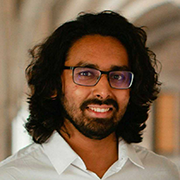 Tejas Dethe |
I am a theorist interested in nonequilibrium pattern formation (in biological systems or otherwise) and soft metamaterials (with or without activity). In my current research projects, I use group theory to understand the effect of buckling in continuum phononic metamaterials as well as create phase-field simulations to probe the effect of hydrodynamics in multicomponent phase-separating flow systems. Institution: Princeton University Advisor: Howard A. Stone and Andrej Košmrlj Website |
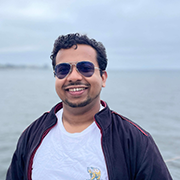 Tanumoy Dhar |
I am a theorist working to understand the active transport of passive colloids and activity-driven colloidal assembly. I develop computational algorithms and continuum kinetic theory to study such interactions between active (polar and nematic) and passive (rigid and deformable) entities. Institution: University of California, San Diego Advisor: David Saintillan |
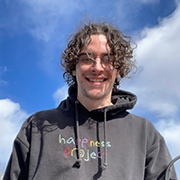 Daniel Evans |
I am a theorist interested in pattern formation and oscillatory behavior in nonequilibrium systems, focusing on systems where multiple field variables (e.g., multicomponent systems) are coupled. Institution: University of California, Berkeley Advisor: Ahmad Omar |
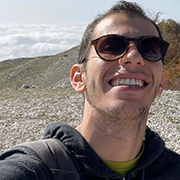 Carlo Giorgetti |
I’m an experimentalist and I’m currently studying collective motion of E. coli bacteria under modulation of activity by external light source. Institution: University of Rome, La Sapienza Advisor: Roberto Di Leonardo |
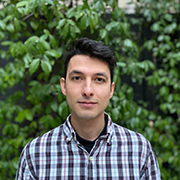 Paulo Casagrande Godolphim |
I am a theorist. The main topic of my Ph.D. thesis is on force inference, mechanical analysis, and physical modeling of biological tissues in fish embryos. My background is in biological physics, especially in active matter, focusing on tissue mechanics and collective movement. Institution: Universidad de Chile Advisor: Rodgrigo Soto Website |
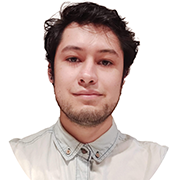 Santiago Gomez Melo |
I am a theorist interested in taking inspiration from biological matter to design new metamaterials with exciting properties, as well as in algorithms that design such materials given a previously specified requirement. Institution: Ruprecht-Karls Universitaet Heidelberg Advisor: Ulrich Schwarz |
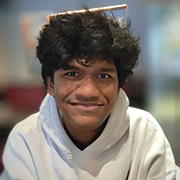 Uday Ram Gubbala |
I am a theorist interested in modelling the nodal-signal mediated internalization during the Zebrafish embryo Gastrulation using the Self-propelled Voronoi framework. Institution: Institute of Science and Technology Austria Advisor: Edourad Hannezo |
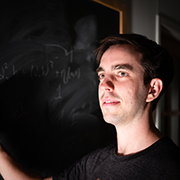 Jacob Hass |
I am a theorist who studies the statistics of many particles diffusing in a common, space-time random environment which introduces correlations in the movement of nearby particles. My work has shown that outlying particles display novel scalings in their fluctuations which can be used to study the underlying environment. Institution: University of Oregon Advisor: Eric Corwin |
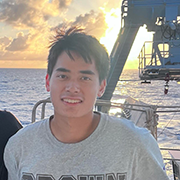 Ian Ho |
I am an experimentalist whose interests lie at the intersection of soft matter, fluid mechanics and soft robotics, including designing self-learning elasto-mechanical networks with embodied intelligence, and investigating collective ciliary dynamics on curved geometry or near interfaces. Institution: Stanford University Advisor: Manu Prakash |
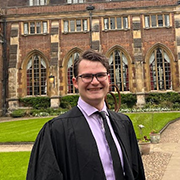 Joel Hochstetter |
I am a theorist. In my research, I search for emergent rules for how stem cells make fate decisions (division, differentiation, loss) in tissues to maintain homeostasis or recover from injury. To this end, I develop stochastic models (including 2D Voronoi models) and develop quantitative data analysis methods to help decipher in vivo mouse data from my collaborators for tissues such as skin and oesephegus. Institution: University of Cambridge Advisor: Ben Simons Website |
 Chanin Kumpeerakij |
Institution: University of Colorado at Boulder Advisor: Juan G. Restrepo |
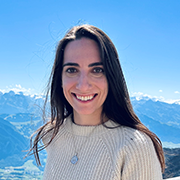 Samantha Lish |
I am a theorist. The multiscale nature of morphogenetics poses a fundamental challenge to investigating mechanisms governing pattern formation during growth. Therefore, I am interested in developing predictive models in parallel with data analysis tools to build biophysical intuition about required ingredients for self-organization of proliferating active matter. Institution: Oxford University/Max Planck Institute for Dynamics and Self-Organization Advisor: Dr. Ramin Golestanian/Dr. Hari Shroff |
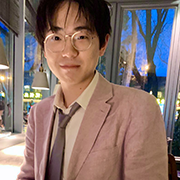 Binghan Liu |
I am a theorist interested in non-equilibrium pattern formation during evaporation. I also interested in the phase behavior of nanoparticle suspensions with a binary solvent mixture. Right now, I’m working on the analytical solution of disc-disc potential and its implementation in MD simulations. Institution: Virginia Tech Advisor: Shengfeng Cheng |
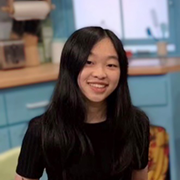 Xiao Ma |
I am a theorist interested in dynamical field theories that describe non-equilibrium systems. My current focuses are on understanding critical behaviour near absorbing state phase transitions, and characterising phase separation in active matter systems. Institution: University of Cambridge Advisor: Michael E. Cates |
 Ayanna Matthews |
I am a theorist who studies the effect of internal prestress in disordered materials. Specifically, how it changes their mechanics and trainability. Institution: University of Chicago Advisor: Sidney Nagel; Margaret Gardel |
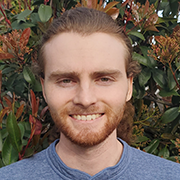 Joey McTiernan |
I am a theorist focused on using continuum modeling and molecular dynamics simulations to enhance our understanding of the assembly and budding of enveloped viruses. Institution: University of California, Merced Advisor: Ajay Gopinathan |
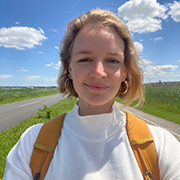 Billie Meadowcroft |
I am a theorist interested in biological physics modelling at the level of cell membranes, the cytoskeleton and extracellular matrix with a focus on out-of-equilibrium systems and dynamics, and with a strong link to experimentalists. Institution: University College London Advisor: Andela Šarić |
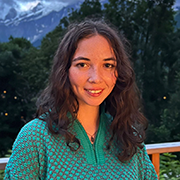 Jessica Metzger |
I am a theorist studying time-irreversibility in active matter and non-equilibrium statistical physics. Right now, I am focusing on ratchet currents and entropy production in active matter, and the non-equilibrium statistical field theory of multi-temperature mixtures. Institution: MIT Advisor: Julien Tailleur Website |
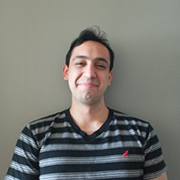 Carlos Moguel |
I’m a theorist interested in the interplay between geometry and elastic deformations in thin structures. I also like to think about problems motivated by biological systems, e.g. noise-induced transitions in bacteria, elasticity of fluid membranes. Institution: Syracuse University Advisor: Christian Santangelo |
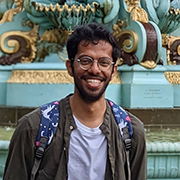 Aniruddh Murali |
I am an experimentalist interested in researching active matter physics, with a particular emphasis on understanding how cells self-organize and how this relates to the nematic order observed in liquid crystals. Institution: University of Southern Denmark Advisor: Francesca Serra Website |
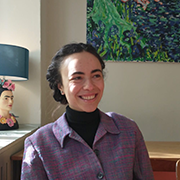 Beatrice Nettuno |
I am a theorist interested in the interplay between reaction-diffusion processes and a geometry shaped (curved, organized) by active matter phenomena. Institution: University of Munich Advisor: Erwin Frey |
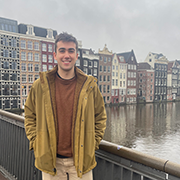 Luke Neville |
I am a theorist. I work in active matter and have spent the last two years focused on active nematic liquid crystals. My recent work focused on how active forces can change the interaction of particles and walls. Institution: University of Bristol Advisor: Tanniemola Liverpool and Jens Eggers |
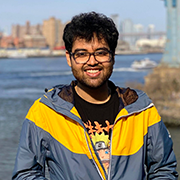 Raghavendra Nimiwal |
I am a theorist broadly interested in understanding the principles underlying equilibrium and non-equilibrium self-assembly. Currently, I am studying the role of dynamics in the formation of charged protein-polyelectrolyte biomolecular condensates using theory and simulations. Institution: Columbia University Advisor: Prof. Kyle Bishop and Prof. Sanat Kumar |
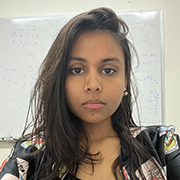 Toshi Parmar |
I am a theoretical physicists working on the rheology of biological tissues such as epithelia. I study the response to perturbations on minimal models of tissues to delineate their mechanical properties. Institution: University of California, Santa Barbara Advisor: M.Cristina Marchetti Website |
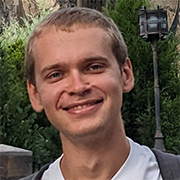 Yury Polyachenko |
I am a theorist. One project is a coarse-grained MD simulation of BRD4 condensates on/off chromatin. Another project is a computational study of low mobility effects on nucleation barriers in multicomponent systems. Institution: Princeton University Advisor: William M Jacobs Website |
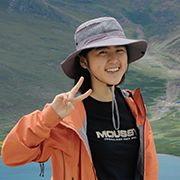 Luyi Qiu |
I am a theorist interested in how cell growth is realized by complex stochastic biological process. Institution: Harvard University Advisor: Ariel Amir |
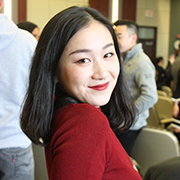 Tammy Qiu |
I am an experimentalist interested in understanding and manipulating the biomechanics of morphogenesis. Institution: Columbia University Advisor: Karen Kasza |
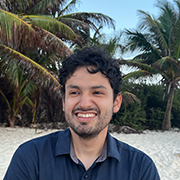 Jairo M. Rojas |
I am a theorist with interests in soft condensed matter and biological physics. My research focuses on the effect of actin in mechanobiology, and self-organization in active matter systems. Institution: University of Illinois, Urbana-Champaign Advisor: Sascha Hilgenfeldt |
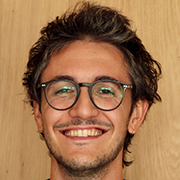 Riccardo Rossetto |
I am a theorist interested in understanding the spatio-temporal organization of patterns in biological systems, particularly in biological membranes, with a field-theoretic approach. Institution: Max Planck Institute for Dynamics and Self-Organization Advisor: David Zwicker |
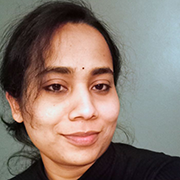 Sreeja Sasidharan |
I am an experimentalist. In my current project, I am interested in understanding how endothelial cells sense flow using microfluidics and microscopy. Institution: Lehigh University Advisor: Aurelia Honerkamp-Smith |
 Luca Scharrer |
I am a theorist interested in the theory of soft and active matter, with a particular focus on nonequilibrium pattern formation, disordered systems, localization, and topologically/geometrically-driven phenomena. Institution: University of Chicago Advisor: Vincenzo Vitelli Website |
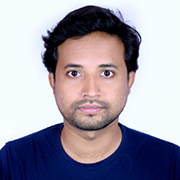 Amir Shee |
I am a theorist currently working on elastically interacting, dense active systems to investigate novel noise-induced collective phenomena. Additionally, I have a keen interest in exploring pattern formation processes, ranging from actomyosin dynamics to tissue-level organization. Institution: Northwestern University Advisor: Cristián Huepe Website |
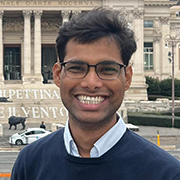 Rushikesh Shinde |
I am theorist. Utilising hydrodynamic theories, I study the physics of active nematic and polar systems on both rigid and deformable surfaces, with a focus on their relevance to epithelial morphogenesis. Institution: Université Paris Cité Advisor: Andrew Callan-Jones Website |
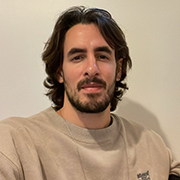 Dor Shohat |
I am an experimentalist working on Nonequilibrium dynamics of disordered mechanical systems and active solids: from physical aging and avalanche dynamics to memory formation and emergent computation. Institution: Tel Aviv University Advisor: Yoav Lahini |
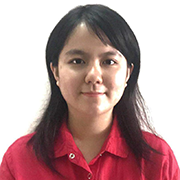 Yiwen Tang |
I am a theorist interested in the emergent collective behavior of cells in dense biological tissues, which is relevant in a broad range of biological processes, including cancer invasion and embryonic development. I am working on how topological defects are generated by the active forces of cell division and apoptosis in homeostatic tissues, and searching for hidden order between crystal order and total disorder. Institution: Northeastern University Advisor: Dapeng (Max) Bi |
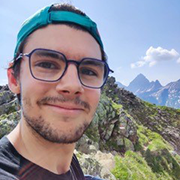 Christian Vanhille Campos |
I am a theorist working on developing coarse-grained particle-based models for dynamic out-of-equilibrium biomolecular processes in the cell. My main focus is cytoskeletal dynamics and organisation, trying to link the microscopic building block properties of different cytoskeleton filaments to their collective self-organisation into functional structures at the cell scale. Institution: Institute of Science and Technology Austria Advisor: Anđela Šarić |
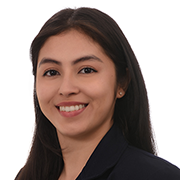 Sasiri Juliana Vargas Urbano |
I am a theorist using the theory of deformable, fluid membranes and simulations to understand how deep sea invertebrates adapt their lipidomes to the high-pressure environment of the deep ocean. Institution: University of Delaware Advisor: Edward Lyman |
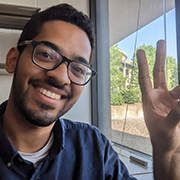 Kaarthik Varma |
I am an experimentalist interested in bio-molecular condensates and their dynamics due to chemical interactions. I am especially interested in understanding the role thermodynamics and phase diagrams play in deciding this dynamics. Institution: Cornell University Advisor: Eric Dufresne |
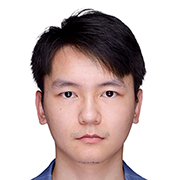 Ding Wang |
I’m a theorist. I’m interested in emergence of order via evolved interactions in soft matter systems, I also work on understanding the wetting properties of multicomponent protein condensates. Institution: Hong Kong Baptist University Advisor: Lei-Han Tang |
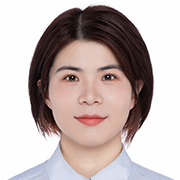 Haiqin Wang |
I am a theorist interested in biological and soft matter physics, particularly modeling and analysis of individual cells and monolayers in complex environments. During my Ph.D. studies, I have been working on the mechanical interactions between adherent cells and their surrounding matrix. Institution: Technion-Israel Institute of Technology Advisor: Xinpeng Xu and Yariv Kafri |
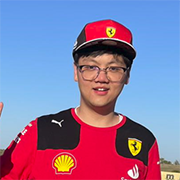 Wei Wang |
I am a theorist interested in the physics of cell motility, sensing and chemotaxis, collective motion, and soft matter. Institution: Johns Hopkins University Advisor: Brian A. Camley |
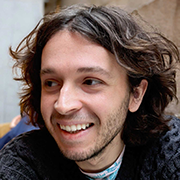 Cheyne Weis |
I am a theorist interested in nonequilibrium statistical mechanics, the many-body properties of systems with non-reciprocity, and applications to biological and neural systems. Institution: University of Chicago Advisor: Peter Littlewood |
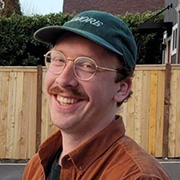 Kent Wilson |
I am an experimentalist interested in phase separation in lipid membrane vesicles. Institution: University of Washington Advisor: Sarah Keller |
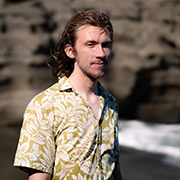 Aaron Winn |
I am a theorist interested in studying locally driven fluidic networks in biological systems including peristaltic pumping in the lymphatic system and contraction-induced flows in the jellyfish gastrovascular system. Institution: University of Pennsylvania Advisor: Eleni Katifori |
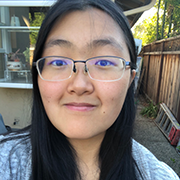 Annie Xia |
I am a theorist, broadly interested in designing mechanical metamaterials inspired by a variety of soft matter systems, especially granular/disordered solids. Institution: Yale University Advisor: Corey O'Hern |
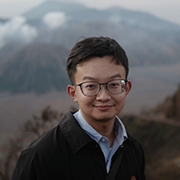 Xiuyang Xia |
I am a theorist whose research interests encompass self-organization and phase transitions in various soft matter and living systems: patchy particles, polymer gels, biomolecular condensates, etc. Institution: Ludwig-Maximilians-Universität München Advisor: Erwin Frey Website |
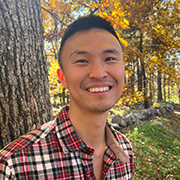 XJ Xu |
I am an experimentalist fascinated by non-equilibrium pattern formation. I am currently trying to understand the emergence of traveling biochemical waves on the plasma membrane of livings cells. Institution: Yale University Advisor: Min Wu |
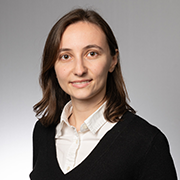 Maria Yampolskaya |
I am a theorist interested in using statistical physics theory to study how order emerges in the process of embryonic development and specifically cell fate determination. Institution: Boston University Advisor: Pankaj Mehta Website |
 Qian-Ze Zhu |
I’m a theorist working on robust self-assembly with functional behavior. More broadly, I’m interested in machine-learning-assisted physics simulation and inverse design of complex physical systems. Institution: Harvard University Advisor: Michael P. Brenner |
| Photo & Contact Information | Research Interests |
|---|---|
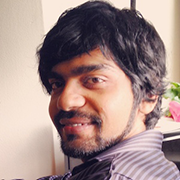 Shiladitya Banerjee |
I develop theory and computational models to study the mechanics and self-organization of biological active matter. Institution: Carnegie Mellon University Website |
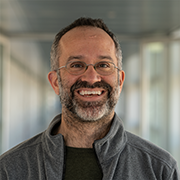 Eric Dufresne |
I am an experimentalist with interests in the physics of biological and biologically-inspired materials. Institution: Cornell University Website |
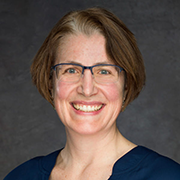 Margaret Gardel |
I am an experimentalist. We study how living matter emerges from collections of molecules to control physiology of cells and tissues. We apply this understanding to design and build new types of active and adaptive soft materials and engineer the shape and dynamics of cells and tissue. Our research interests span fields of cellular biophysics, epithelial and endothelial biology, cell adhesion & migration, active & adaptive matter, cytoskeleton dynamics and mechanics and cell mechanotransduction. Institution: University of Chicago Website |
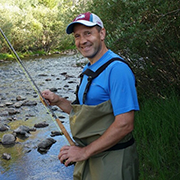 Leo Radzihovsky |
My theoretical research interests span a broad spectrum of classical and quantum condensed matter. These range from entropy-dominated liquid crystals, colloids, membranes, rubber and other “soft” matter to quantum matter, such as superconductors, magnets, degenerate atomic gases, quantum Hall and other topological states of matter, most recently fractons and their interplay of elasticity duals. I aim to understand the nature of phases and phase transitions exhibited by these systems, with the unifying theme of collective universal behavior that emerges at long scales and low energies, driven by a combination of strong interactions, fluctuations, and/or local heterogeneity. Institution: University of Colorado, Boulder Website |
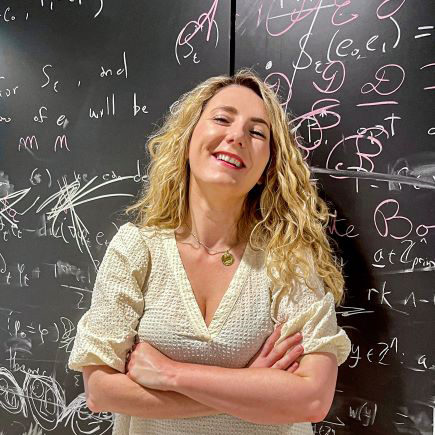 Andela Saric |
I am a theorist who studies how large molecules self-organise far from equilibrium, to give living from non-living. Recently I’ve been interested in physics behind cell division, cell trafficking, and multicellular symbiosis. Institution: Institute of Science and Technology Austria Website |
| Photo & Contact Information | Research Interests |
|---|---|
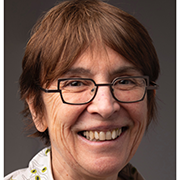 Patricia Bassereau |
I am an experimentalist who develops a multidisciplinary approach, largely based on biomimetic systems, and quantitative mechanical and microscopy methods to understand the role of biological membranes and of their organization in different cellular functions, in particular cellular trafficking, or the mechanics and the generation of cellular protrusions. In addition, I am interested in a physical understanding of biomembranes, such as the relation between membrane proteins’ shape and their diffusion or their lateral distribution on membranes. Institution: Institut Curie Website |
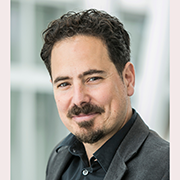 Itai Cohen |
I am an experimentalist. I study the physics of matter in motion. At Cornell, my research has focused on building microscopic robots, controlling the shear thickening behavior of microscopic and nanoscopic particles suspended in a fluid, exploring the mechanics of materials ranging from biological tissues to origami inspired metamaterials, discovering the aerodynamic and neuromuscular mechanisms used by insects during flapping flight, and determining how audiences at heavy metal concerts coordinate their movement. Understanding how emergent behaviors arise from the microscopic rules governing these systems remains one of the biggest challenges in Physics. Institution: Cornell University Website |
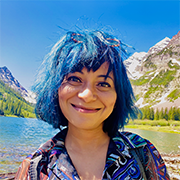 Moumita Das |
I am a theorist interested in collective behavior in network-like soft materials, particularly biological systems that involve an interplay between mechanics, (equilibrium or non-equilibrium) statistical mechanics, geometry, and structural properties. Institution: Rochester Institute of Technology Website |
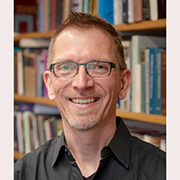 Markus Deserno |
I use theoretical and computational tools to understand how the properties of lipid bilayers emerge from their constituents and how the resulting membranes contribute to a host of biological functions. Institution: Carnegie Mellon University Website |
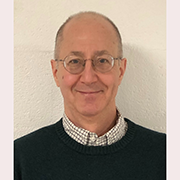 Douglas Durian |
I am an experimentalist with a long-standing interest in particulate forms of soft matter such as foams, granular media, suspensions. Recent interest in intersection of machine learning and soft matter, and now electronic and mechanical metamaterials that can learn complex functionality using local rules. Institution: University of Pennsylvania Website |
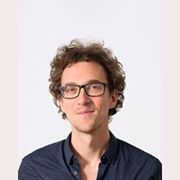 Edouard Hannezo |
I am a theoretical biophysicist - our group is particularly interested in using soft and active matter theory to understand multicellular self-organization. Institution: Institute of Science and Technology Austria Website |
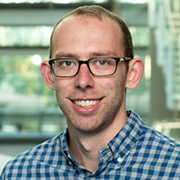 William Jacobs |
I use theoretical and computational tools to study how biomolecular systems self-organize via phase separation and self-assembly. Institution: Princeton University Website |
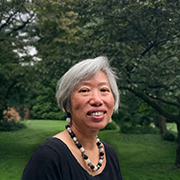 Andrea Liu |
I am interested in theoretical and computational soft and living matter. Institution: University of Pennsylvania Website |
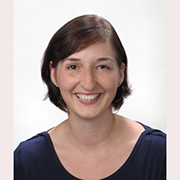 Lisa Manning |
I am a theorist who studies the collective behavior of group of cells in biological tissues as well as deformation and failure in disordered solids ranging from glasses to granular materials. We use computational and theoretical techniques and extend tools from statistical and soft matter physics to understand and predict emergent phenomena in these far from equilibrium systems, and work closely with experimentalists and scientists around the globe. Institution: Syracuse University Website |
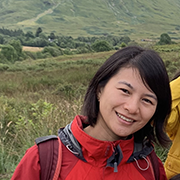 Yanlan Mao |
I am an experimentalist who uses an interdisciplinary approach, combining genetics, imaging, mathematical modelling and engineering approaches to study how tissues grow to their right shape during development, how they maintain this shape during homeostasis, and how they repair back to their ideal shape after injury. Institution: University College London Website |
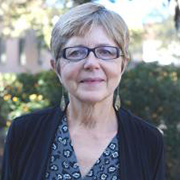 Cristina Marchetti |
I am a theoretical physicist interested in the emergent behavior of active matter. My group employs theory and computation and makes complementary use of bottom-up modeling and top-down phenomenology to investigate the self-organized structural and mechanical properties of these complex systems. Institution: University of Californa, Santa Barbara Website |
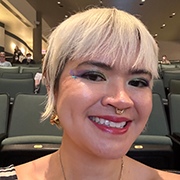 Sabetta Matsumoto |
I am an experimentalist interested in untangling the relationship between the geometry and topology of a material and its emergent mechanical properties. I am particularly interested in the geometry and topology of textiles Institution: Georgia Tech Website |
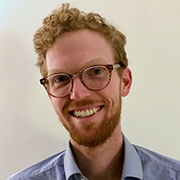 Noah Mitchell |
I am an experimentalist interested in the interplay between mechanics, genes, and geometry in organ development. My lab studies the collective cell behaviors and mechanical interactions across tissue layers that govern morphogenesis in embryonic visceral organs. To do so, we combine whole-organ live imaging, genetic tools, computation, and analytic approaches from soft matter physics. Institution: University of Chicago Website |
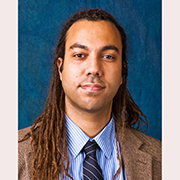 Michael Murrell |
I am an experimentalist. I study the non-equilibrium properties of macromolecular assemblies, cells and tissues. Institution: Yale University Website |
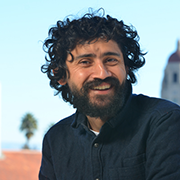 Manu Prakash |
I am an experimentalist. I use highly interdisciplinary approaches including theory and experiments to understand how computation is embodied in biological matter. Examples include cognition in single cell protists, morphological computing in animals with no neurons and origins of complex behavior in multi-cellular systems. Broadly, I invent new tools for studying non-model organisms with significant focus on life in the ocean - addressing fundamental questions of cell biology in context of its ecology? I am also dedicated towards inventing, building and scaling-up “frugal science” tools to democratize access to science such as Foldscope, diagnostics of deadly diseases like malaria and convening global citizen science communities to tackle planetary scale environmental challenges such as mosquito or plankton surveillance by citizen sailors mapping the ocean in the age of Anthropocene. Institution: Stanford University Website |
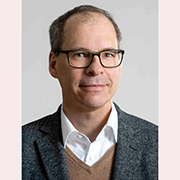 Ulrich Schwarz |
I am a theoretical physicist with a background in statistical, soft matter and biophysics. I am working mainly on modeling cell adhesion and mechanics across scales, from the cytoskeleton and molecular motors through single cells up to the tissue level. Institution: Heidelberg University, Institute for Theoretical Physics Website |
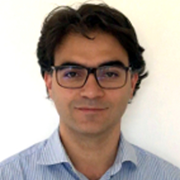 Vincenzo Vitelli |
I am a theorist whose group’s interests span several areas at the interface between science, engineering and applied mathematics. Recent work encompasses biophysics, active matter, machine learning, robotics, metamaterials, topological insulators, hydrodynamics, dynamical systems and soft materials. Often the rich phenomenology of these complex systems arises from the interplay between strong non-linearities, disorder and dynamics far from equilibrium that we explore using analytical and numerical tools in close collaboration with experimentalists. Institution: University of Chicago Website |
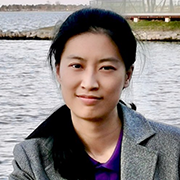 Kirsty Wan |
I am an experimentalist who studies how cells and small organisms control and orchestrate complex behaviours. My lab integrates both experimental and theoretical approaches to explore fundamental biological questions such as behaviour and cognition in ‘simple’, even aneural organisms. We are particularly interested in the biophysics of out-of-equilibrium living systems and understanding the origins and diversification of cilia. Institution: Living Systems Institute University of Exeter Website |
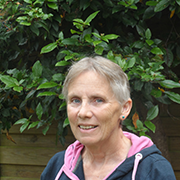 Julia Yeomans |
I am a theorist. I apply techniques from theoretical and computational physics to problems in soft condensed matter and biophysics. I am currently particularly interested in active matter and mechanobiology. Institution: University of Oxford Website |
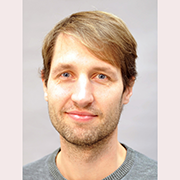 David Zwicker |
I am a theorists who tries to understand how biological matter is organized. My group analyze theoretical models of biological processes using tools from statistical physics, dynamical system theory, fluid dynamics, and information theory. Institution: Max Planck Institute for Dynamics and Self-Organization Website |

